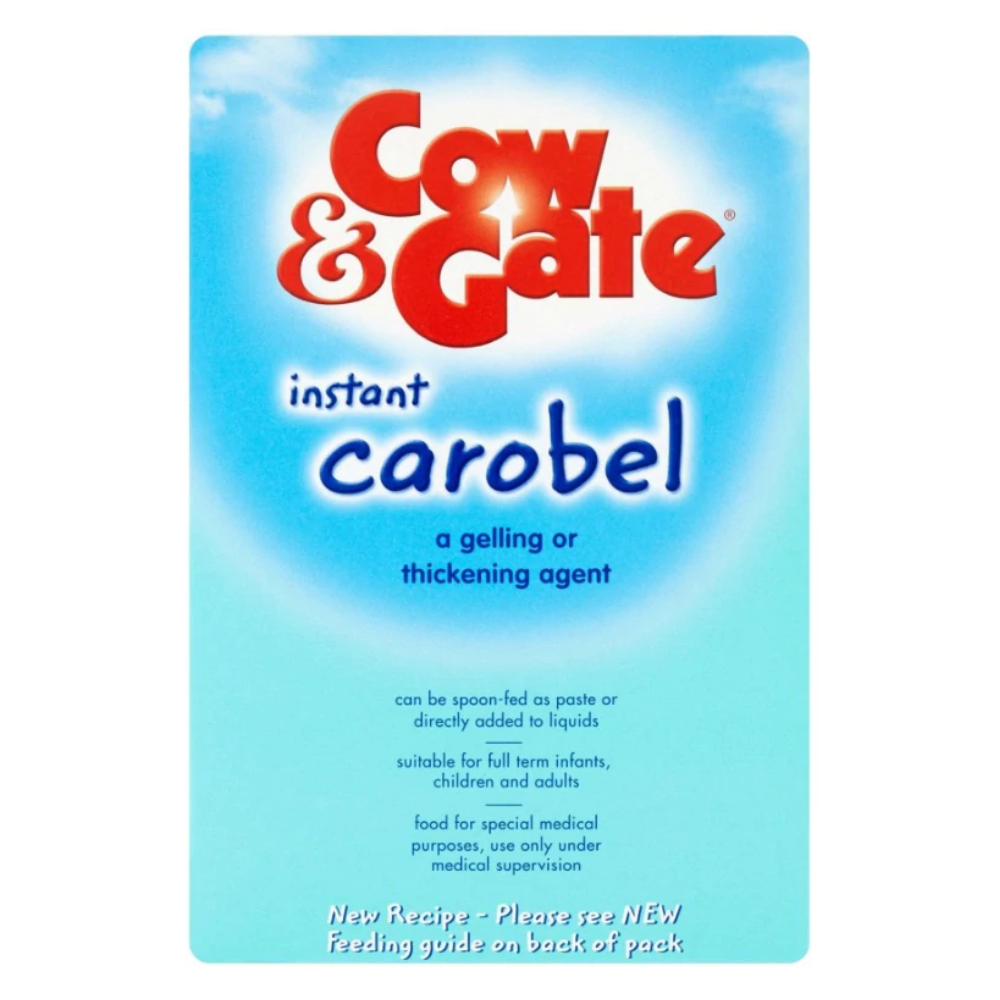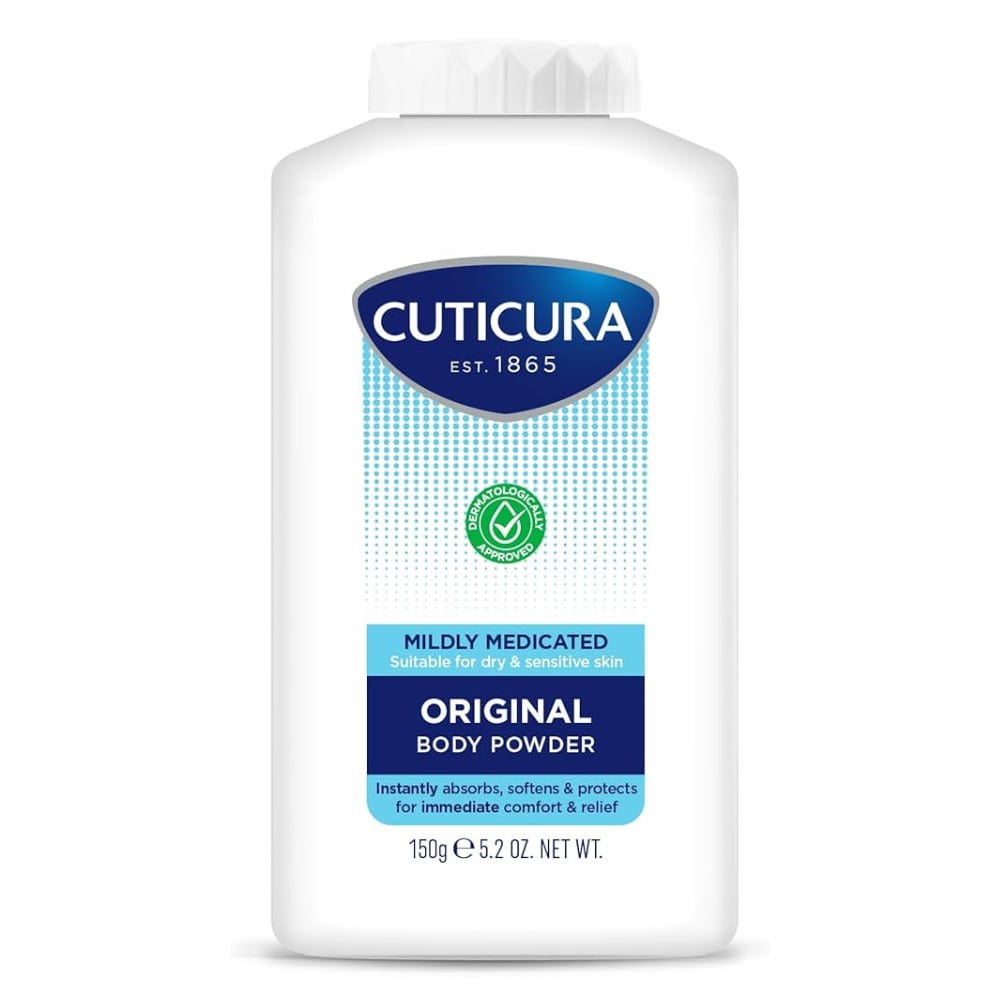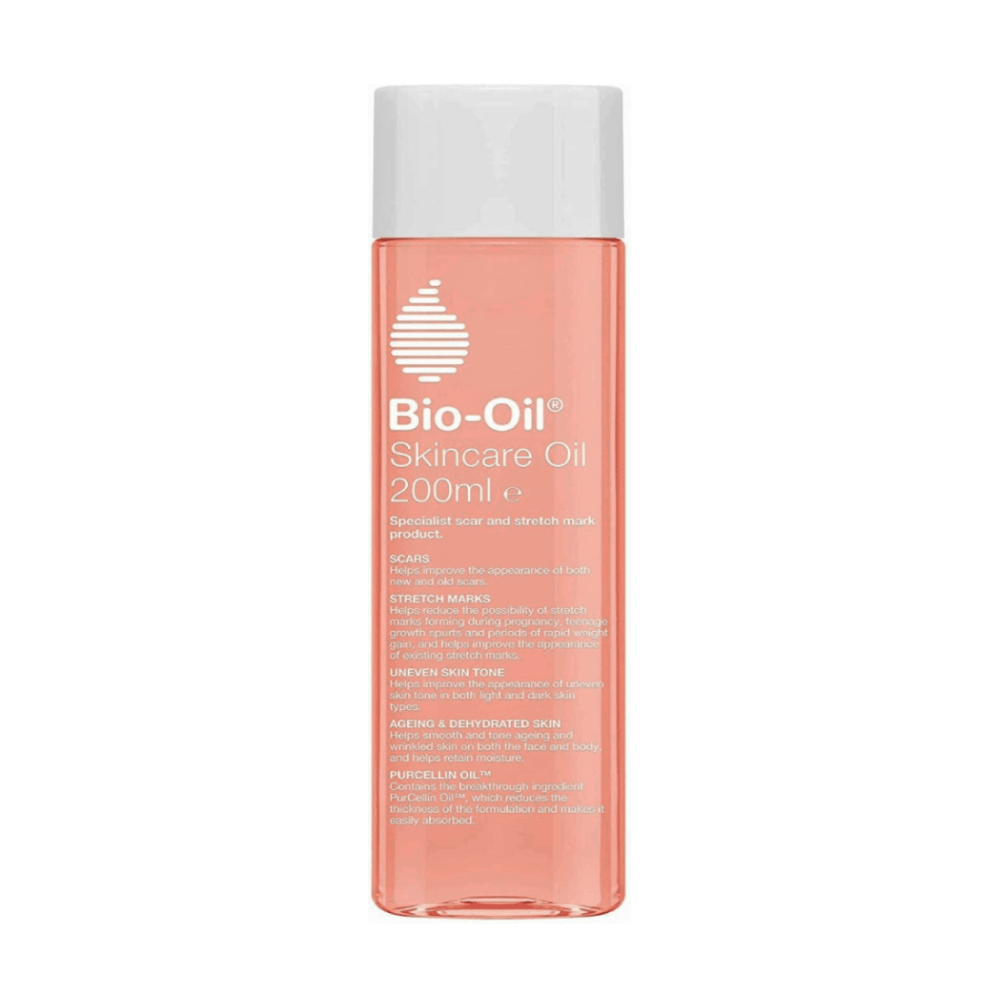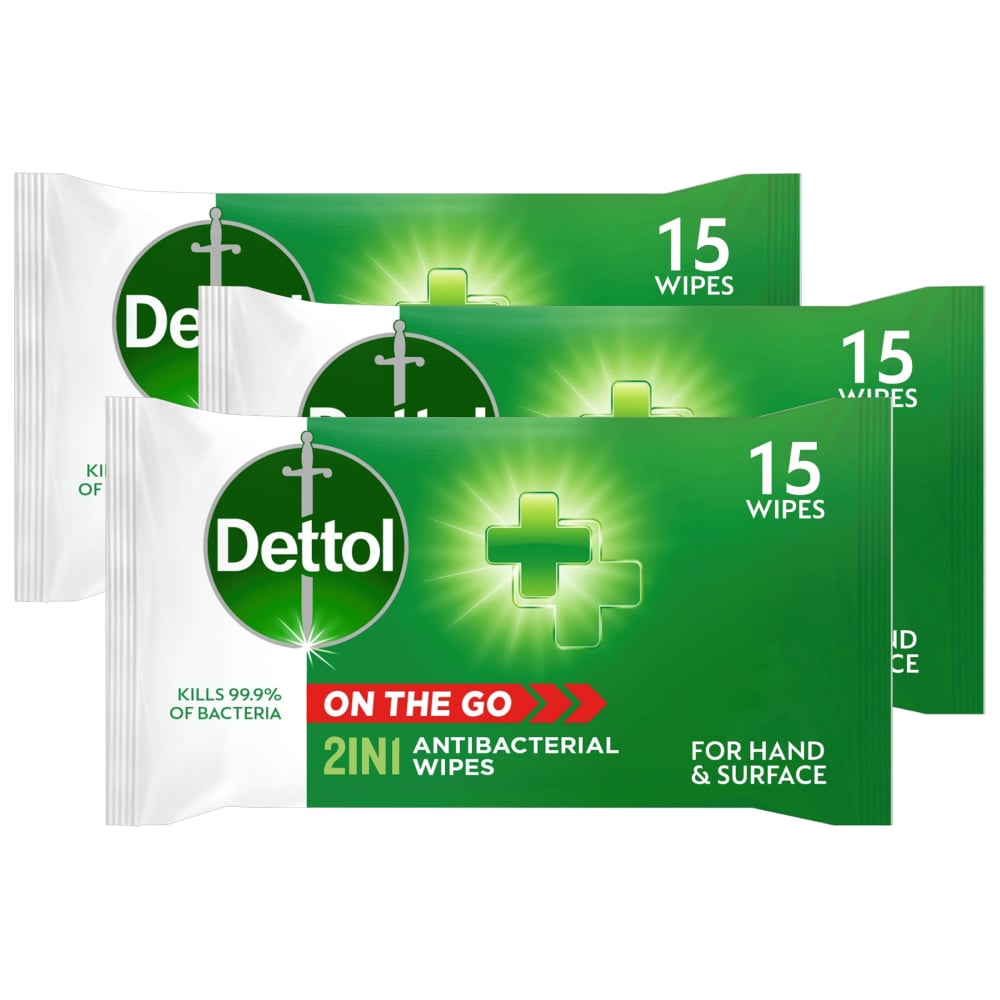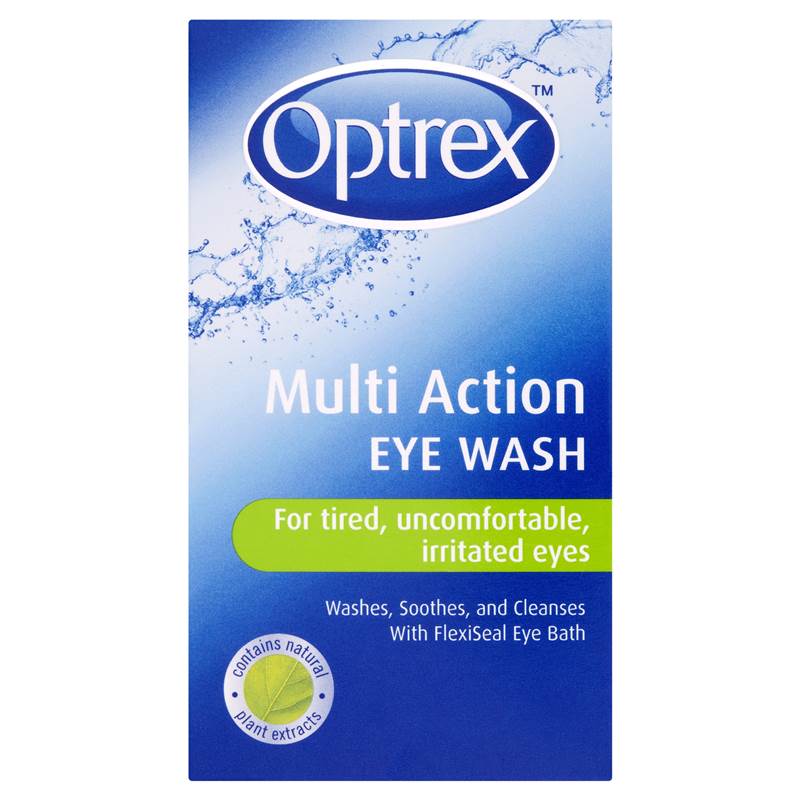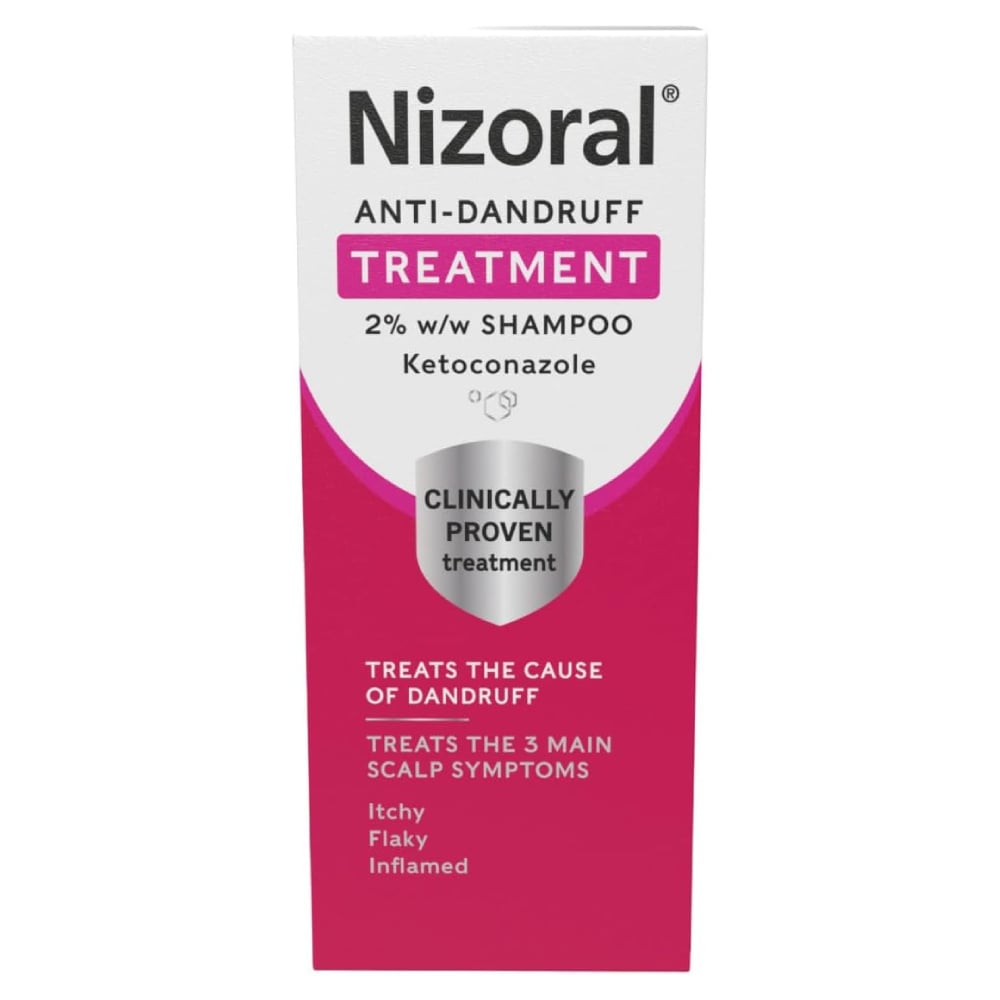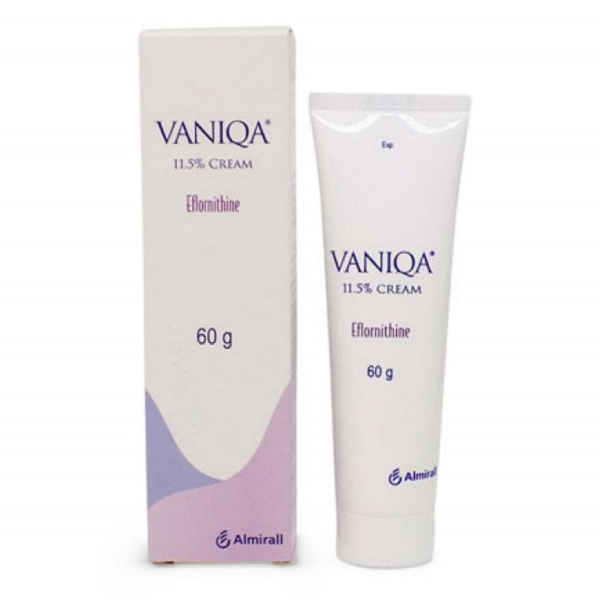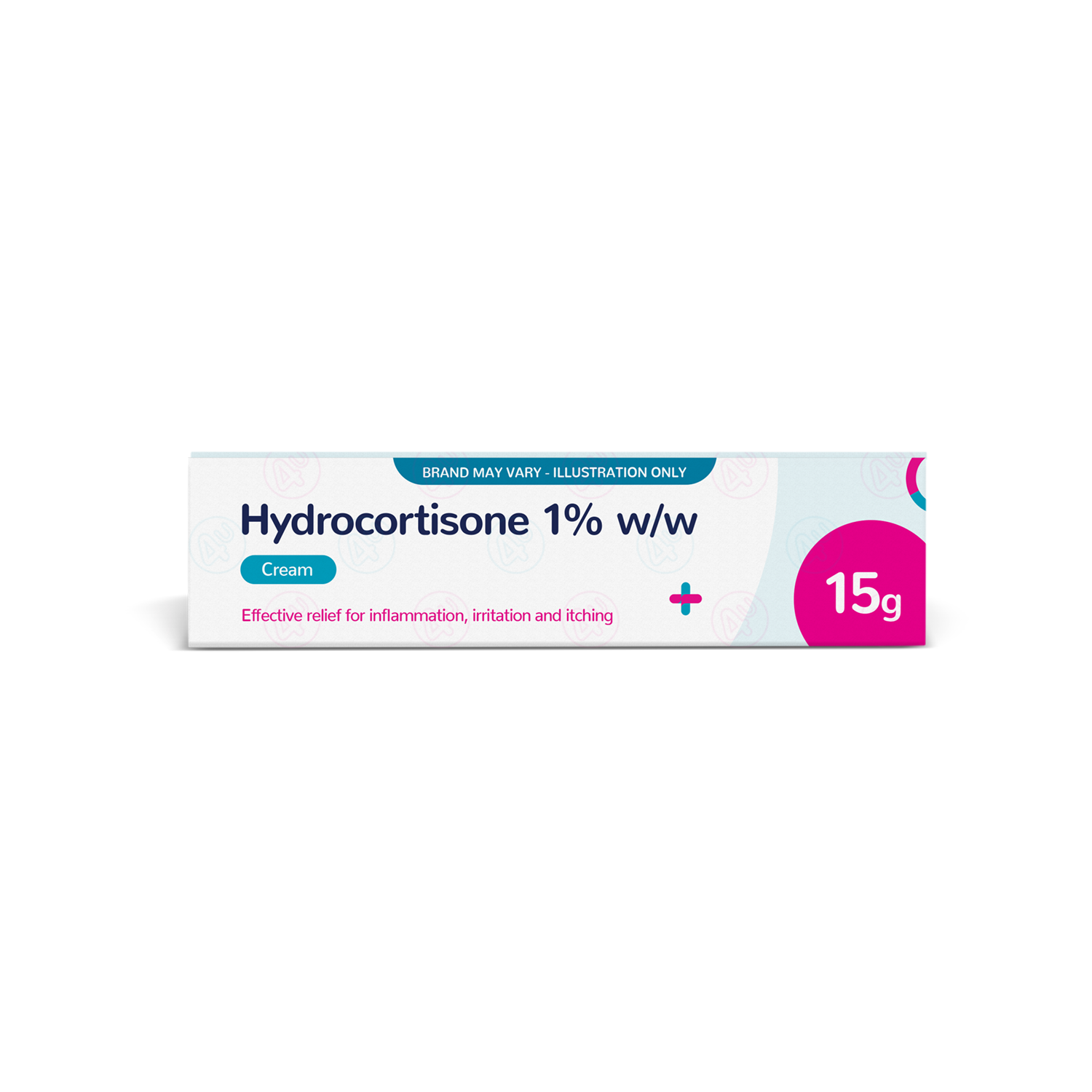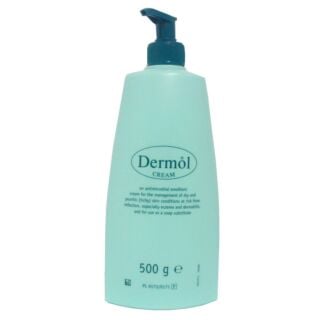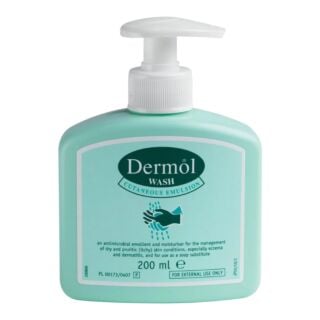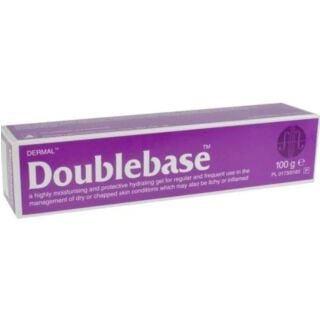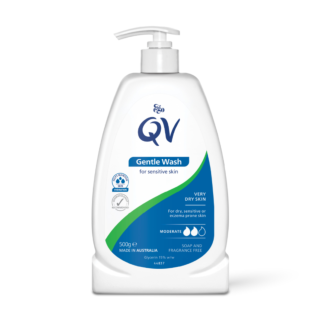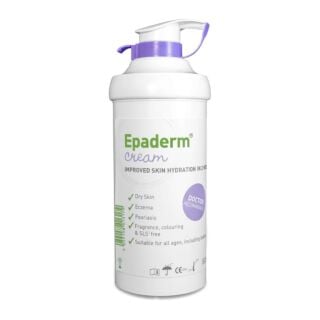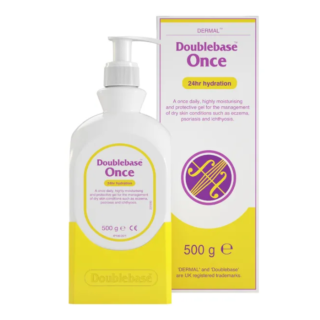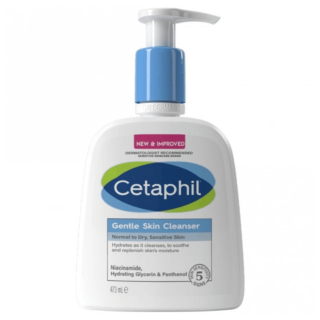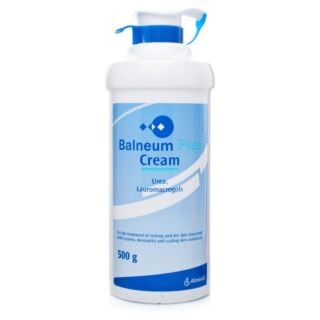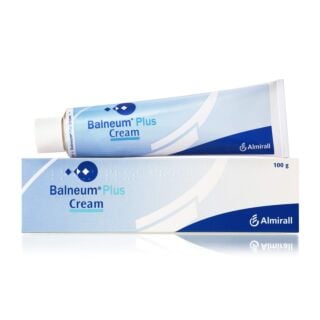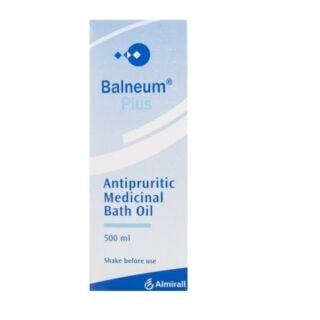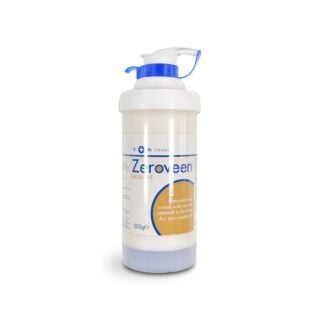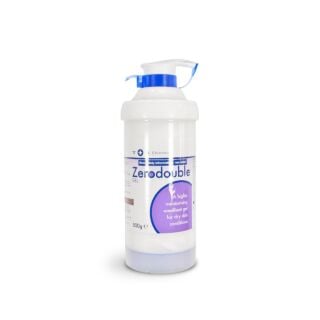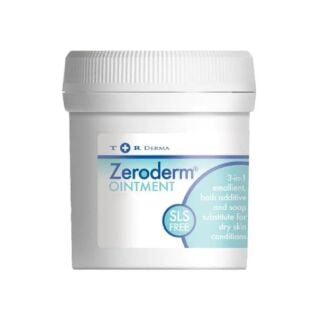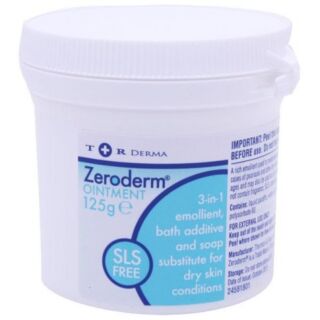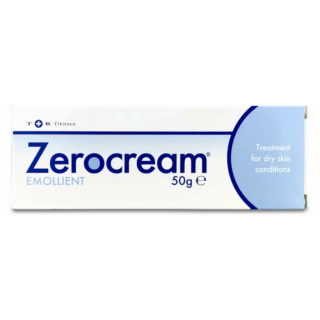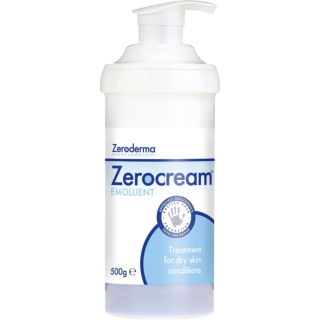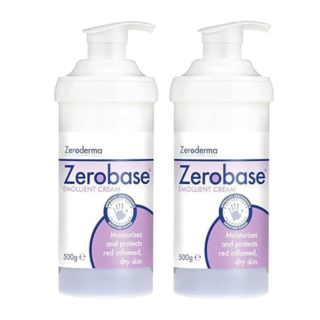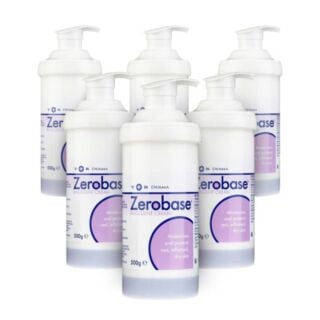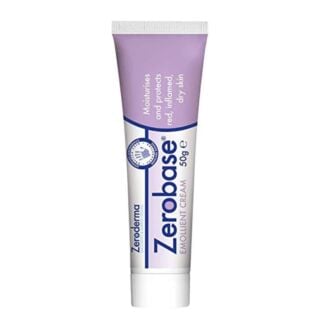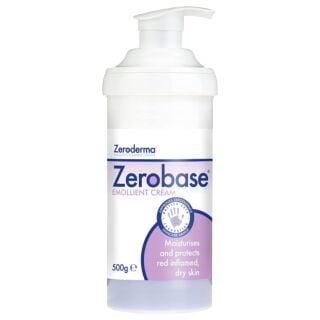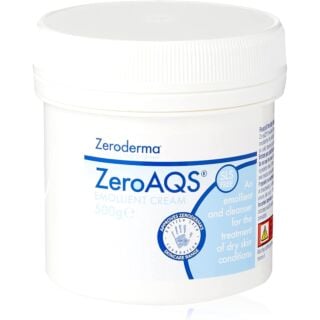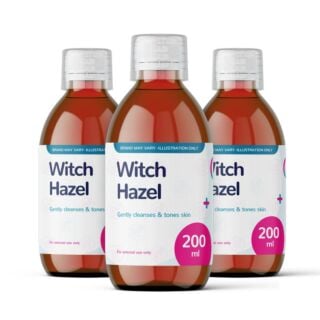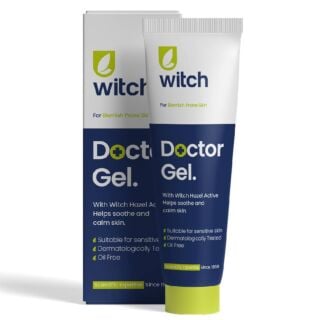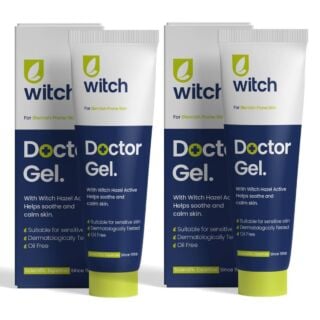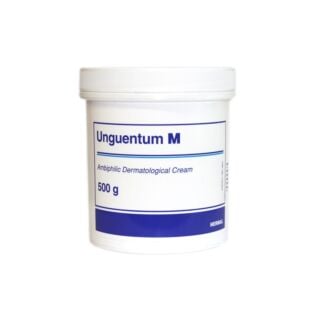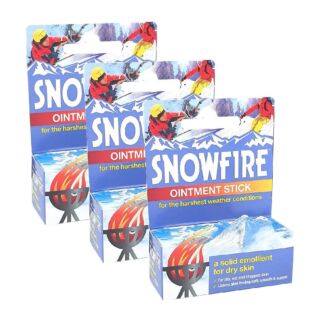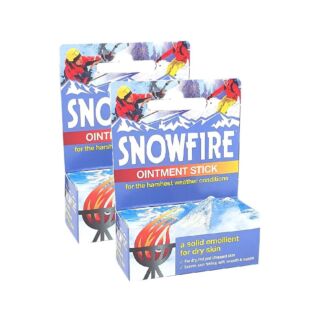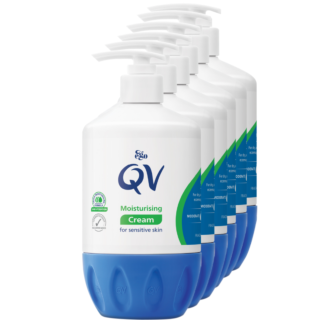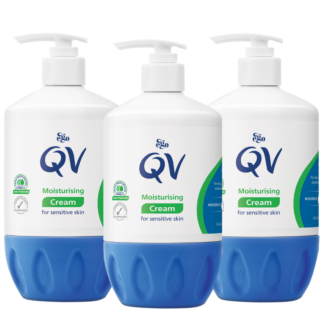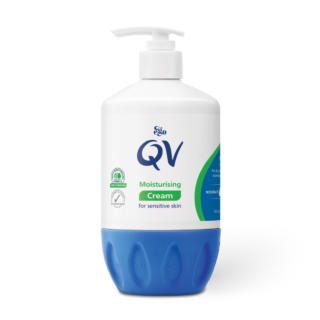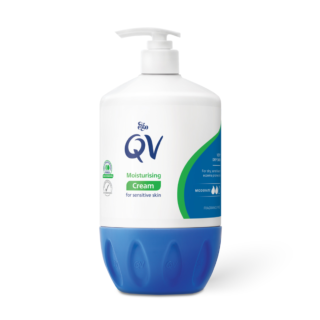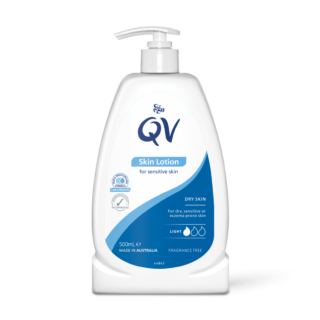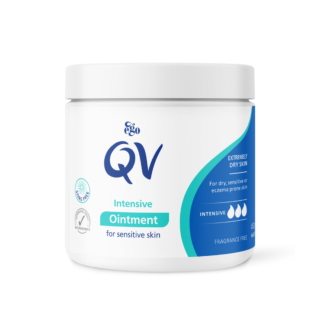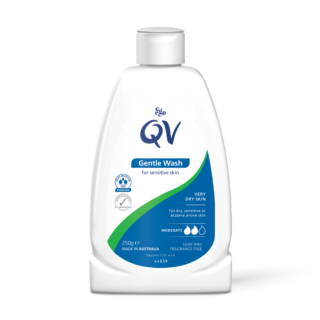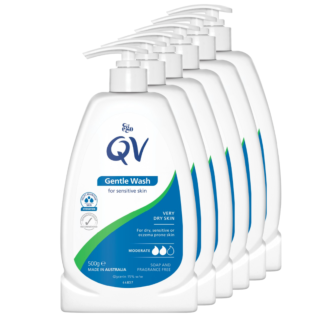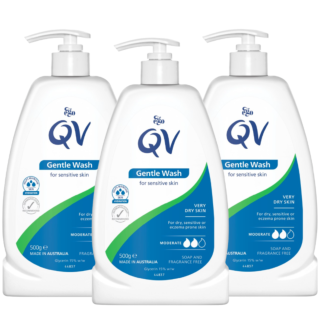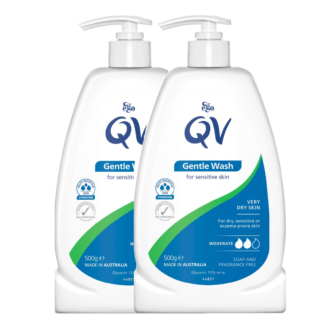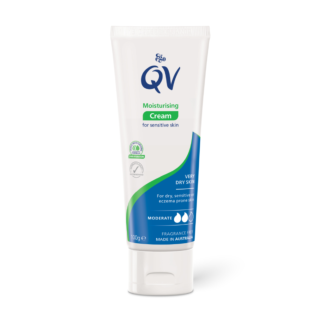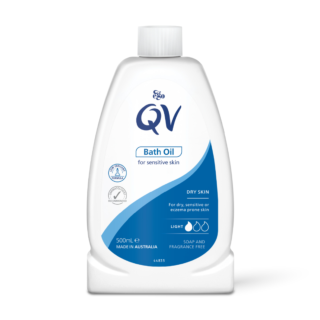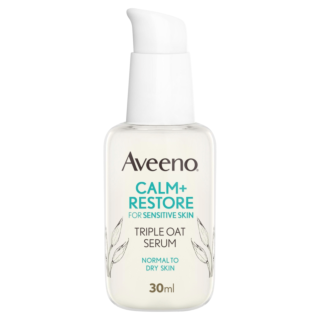Dry Skin

Free delivery when you spend over £30

100% discreet delivery for every item ordered

Fully regulated UK pharmacy
How can emollients help me to manage dry skin and eczema?
Emollients and moisturisers help to ease your eczema symptoms by hydrating your skin, helping to keep your skin soft and controlling your flare-ups.
Emollients work by forming a protective layer over your skin which helps to keep moisture from escaping, hydrating your skin from the inside out.
Some emollients also contain ingredients which can protect your skin from irritants like soap or detergents, taking a two-pronged approach to managing your eczema flare-ups.
What are some good tips for dry skincare?
Your skin draws moisture from the environment, your diet and your skincare routine. The water content of the outermost layer of your skin (the epidermis) also tends to reflect the level of humidity around it, so following the same skincare routine year-round may not be working when the humidity drops.
Here are a few simple ways to keep your skin hydrated and combat dry, itchy skin:
How often should I wash my face if I’ve got dry skin?
If you’ve got dry or sensitive skin, it can be irritating if you wash your face twice a day.
Use a creamy, gentle and hydrating facial wash at night and simply rinse your face with warm water in the morning.
What causes dry skin?
When your skin is dry you may experience scaly or flaky skin or skin that has fine lines or cracks.
If you touch your skin, it may feel rough and sensitive or even a little painful.
There are many factors that can cause dry skin from the weather to spending too long in the shower Whenever we leave the house, our skin is exposed to the elements, from UV rays to freezing temperatures.
Our skin is at particular risk during the winter months, as temperatures plummet and humidity is reduced, which dries out our skin.
Again, in winter, we are more likely to turn up the thermostat or light the fire, which may feel lovely after a day out in the cold, but sources of heat in our homes reduce the moisture in the air, which can cause our skin to lose hydration.
Taking hot showers and baths with harsh soaps or detergents, can damage our skin through dehydration and stripping the skin of its natural oils.
Spending lots of time in chlorinated water, such as swimming pools and hot tubs can also strip our skin, leaving it dry.
What is the best type of face mask for dry skin?
If you’ve got dry, dull skin, you’ll want to look for a hydrating, brightening mask.
It should contain ingredients like glycerin, vitamin C, honey, aloe vera, hyaluronic acid, or oils and butters.
Which shower gel should I use for dry skin?
If you’ve got dry, cracked or eczema-prone skin, it may feel like some shower gels and body washes dry out your skin even more.
You’ll need to look for a shower gel that not only cleanses your skin, but also thoroughly hydrates it.
Consider a soap-free body wash with no sulphates, parabens or fragrances, instead containing hydrating ingredients like natural essential oils and vitamin E.
Why do I have dry skin?
There are lots of reasons why you might have dry skin.
Some people have dry skin due to skin conditions such as eczema, psoriasis, dermatitis, and more, but others find that their environment affects their skin.
For example, if you work in a profession where you have to wash or scrub your hand regularly, this can dry out your skin.
Your skin can also become irritated by soaps, detergents, sanitisers, and other cleaning agents.
Other reasons why your skin can become dry or flaky can include hormonal changes and taking long, hot baths or showers.

